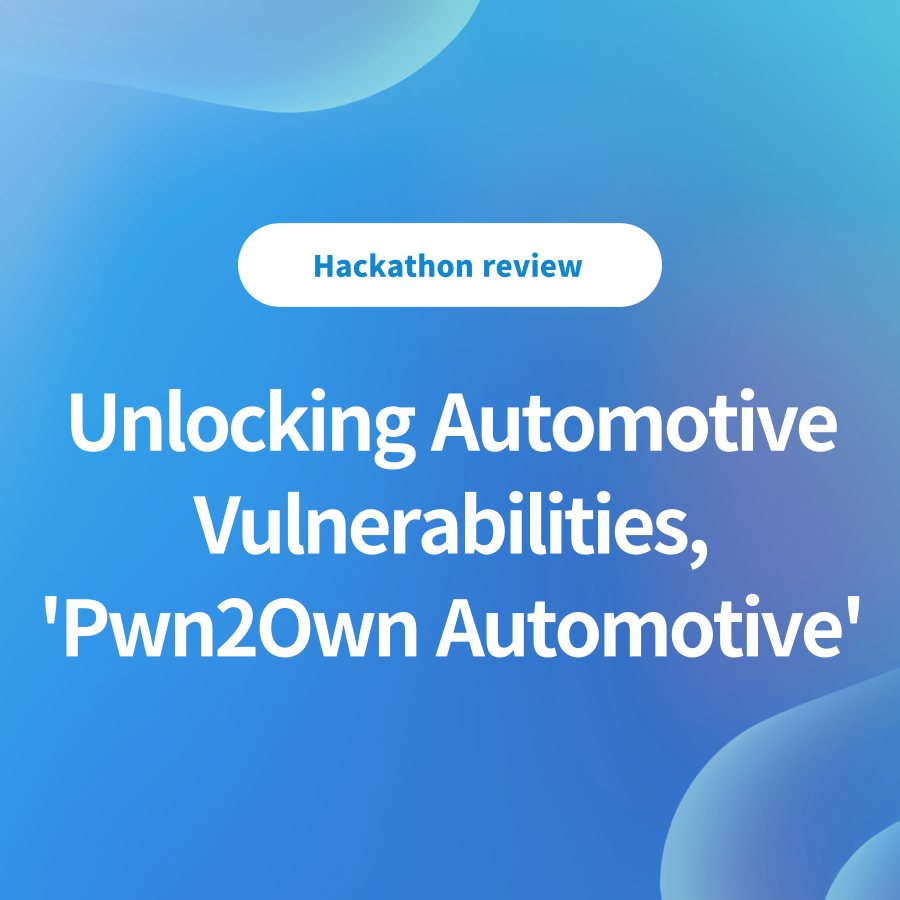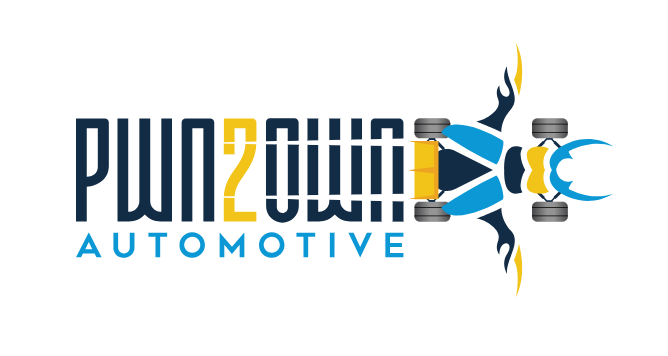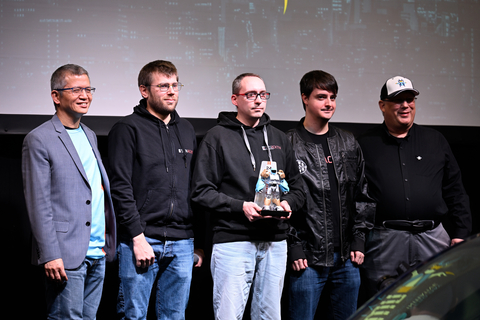
In January 2024, a team of hackers who successfully hacked a Tesla and took control of the car received a total reward of $450,000. What's even more surprising is that Tesla directly participated in paying the prize money. Let’s find out what happened.
In 2023, a whopping 95% of software-defined vehicle (SDV) cybersecurity incidents were caused remotely, with even half of them being large-scale attacks that could affect tens of millions of vehicles. Accordingly, the role of white hat hackers is becoming more important by identifying and proactively responding to automotive software vulnerabilities and preventing the spread of subsequent damage.

Pwn2Own Automotive LOGO (Source = VicOne)

The winning team, Synacktiv (Source = businesswire)
An information security company from France, Synacktiv won the competition by successfully hacking the Tesla modem (data signal conversion device), EV charger, and in-vehicle infotainment (IVI) sandbox system through vulnerability chain (a method of linking multiple security vulnerabilities). In particular, they successfully hijacked Tesla's entire IVI and gateway system over two days, vividly demonstrating the dangers of automotive cyberattacks.
FESACRO was able to get in touch about this event through the global automotive cybersecurity association ‘Auto-ISAC.’ Auto-ISAC is a professional association where leading global companies such as Hyundai Motor Company, Kia, GM, and Mercedes-Benz share the latest information on automotive cybersecurity and cooperate to respond. Government agencies such as the FBI and CISA (Cybersecurity and Infrastructure Security Agency) in the United States are also participating as stakeholders and are actively working on future mobility security. FESCARO, which has great expertise in automotive cybersecurity, is at the forefront of the latest information as an Auto-ISAC community partner. By participating in various activities such as the association's technical seminars, monthly forums, and annual conferences, we feel the growing influence of white hat hackers.
FESCARO's own red team, comprised of white hat hackers, has various success stories of effectively responding to the international automotive cybersecurity regulations (UN R155) by discovering various security vulnerabilities through professional security testing. We have secured over 100 test items and 200 test cases and are continuously developing and strengthening various simulation environments. If you're curious about the details, keep an eye out for FESCAO’s presentation at Auto-ISAC’s Annual Cybersecurity Summit this fall. In addition, FESCARO's red Team, which is being recognized widely in the automotive cybersecurity field, will also soon participate in various hackathons.